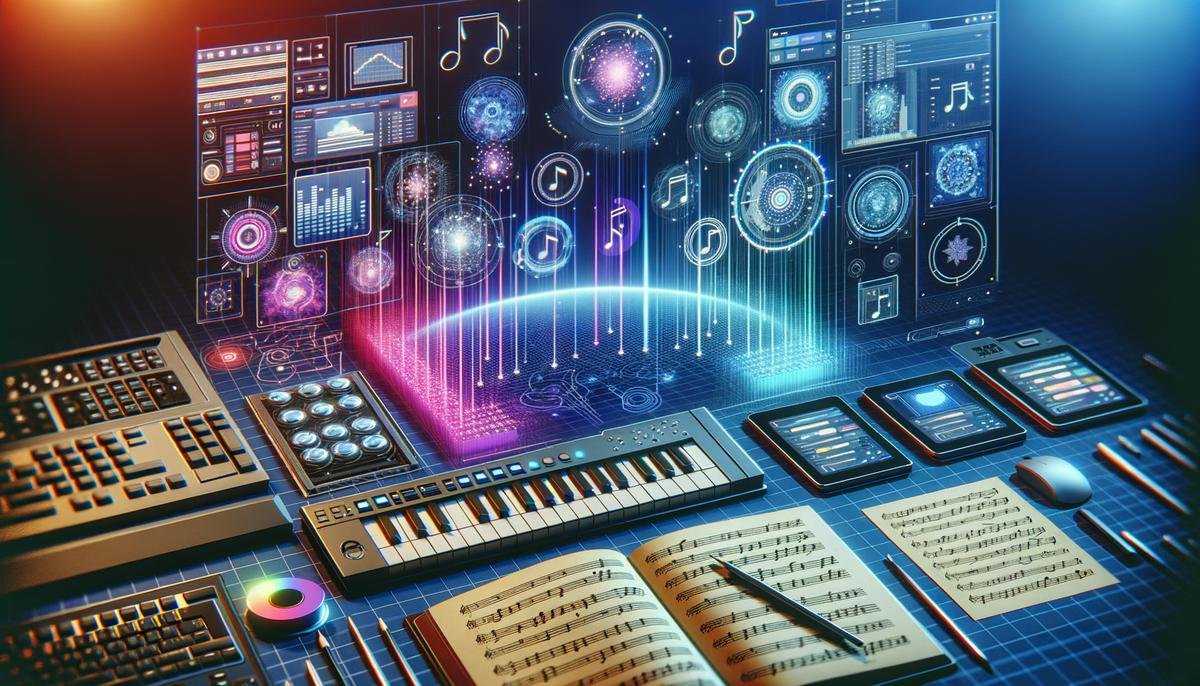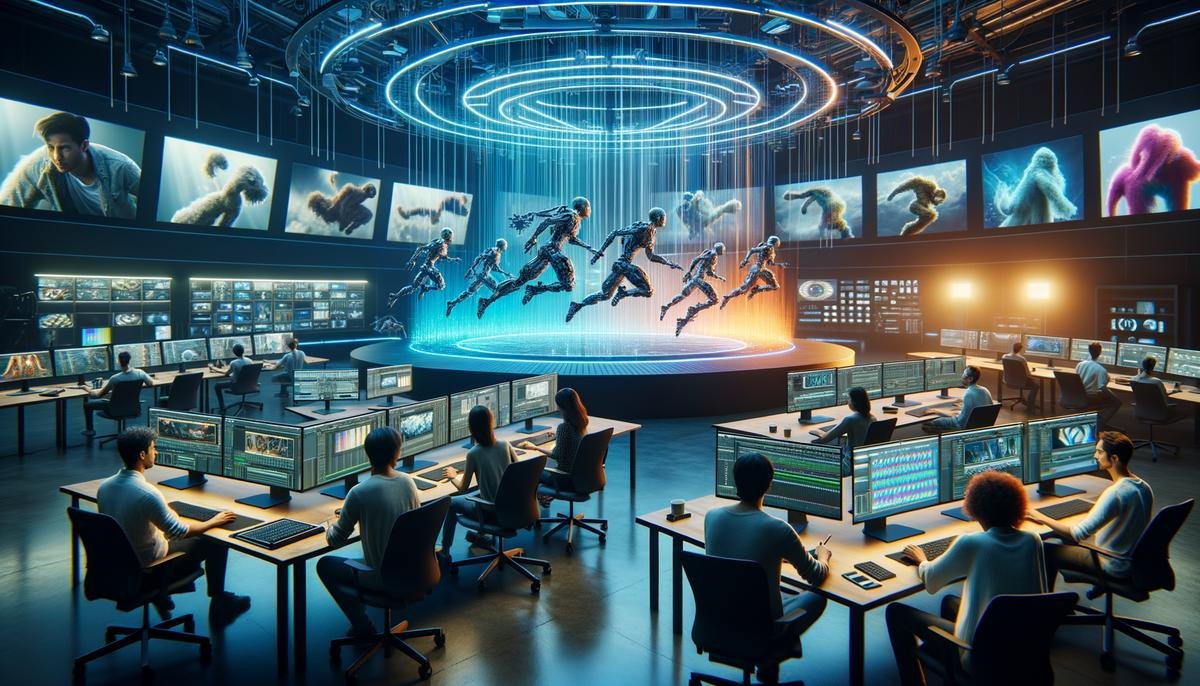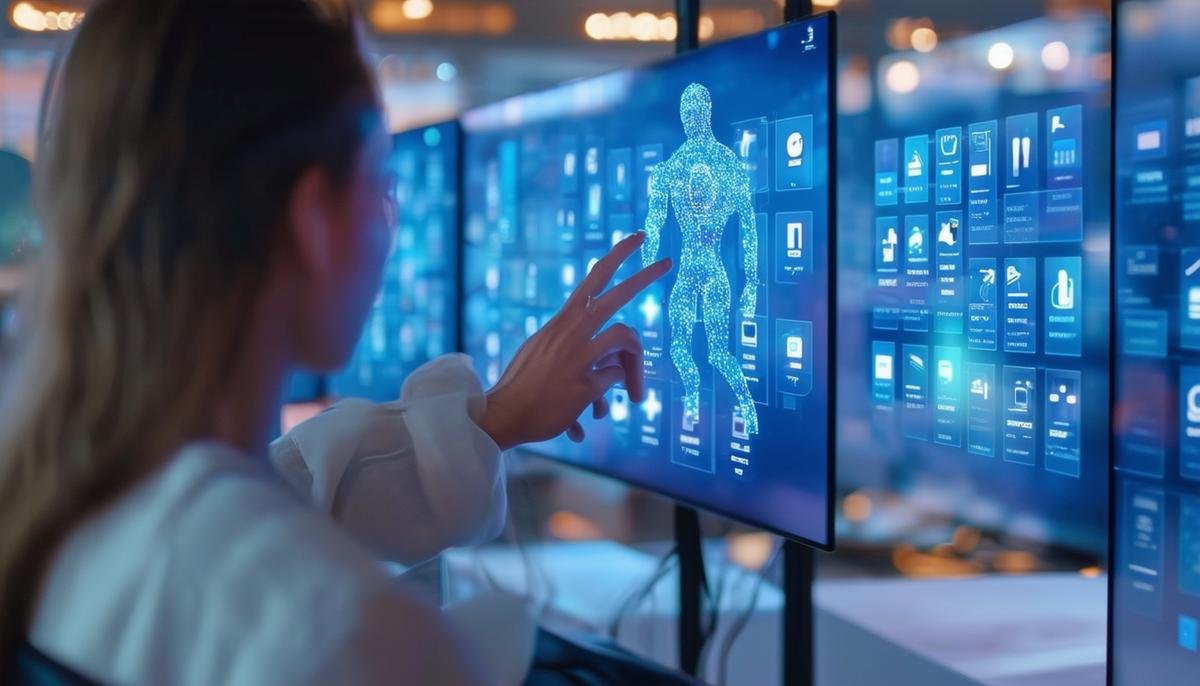AI in Content Creation
AI is transforming content creation across various media. Tools like MuseNet and Jukedeck generate music that blends genres, useful for film, TV, and games. In scriptwriting, AI models like GPT-4 assist with plot suggestions and dialogue. Visual art benefits from AI, with tools like Google's DeepDream creating surreal images and GANs generating realistic environments based on text prompts.
In digital animation, AI automates tasks like tweening, reducing production time and allowing artists to focus on creativity. For example:
- AI-powered script analysis tools predict box office success
- Automated music composition creates soundtracks for media projects
- AI generates storylines and plot twists

AI in Visual Effects and Animation
AI is revolutionizing visual effects and animation in film and television. In "Rogue One: A Star Wars Story," AI technology recreated Peter Cushing's likeness, while "The Irishman" used AI-driven CGI to de-age actors. Deepfake technology, though ethically complex, offers new storytelling possibilities.
AI streamlines animation production by automating tasks like tweening and generating realistic effects for natural phenomena. These advancements allow for higher quality output in less time, expanding the boundaries of visual storytelling.
Key AI applications in VFX and animation:
- AI-driven motion capture technology
- Automated background generation and scene completion
- Deep learning algorithms for realistic character animations

AI in Personalization and Recommendation Systems
AI-driven personalization and recommendation systems are changing how we consume content. Platforms like Netflix, Spotify, and YouTube use algorithms to analyze user behavior and preferences. Techniques such as collaborative filtering, deep learning, and content-based filtering create highly customized suggestions.
These systems enhance user experiences by offering relevant content, keeping users engaged for longer periods. As these technologies evolve, they continue to refine our interactions with digital content, adapting to individual tastes and preferences.
"AI-powered recommendation engines are perhaps the most visible application of AI in entertainment today."

AI in Virtual and Augmented Reality
AI is enhancing virtual and augmented reality experiences. In games like "No Man's Sky," procedural generation creates vast, diverse universes. AI customizes VR experiences based on user behavior, making events like virtual concerts more dynamic.
In AR, AI overlays digital information onto the physical world, creating interactive shopping and educational experiences. AI-driven virtual characters can simulate realistic conversations, making virtual interactions more natural. These advancements are redefining how we interact with digital spaces, merging virtual and physical worlds in new ways.
AI applications in VR and AR:
- Procedural generation of infinite virtual worlds
- Personalized VR and AR experiences
- AI-powered chatbots for immersive interactions

Challenges and Ethical Considerations
The integration of AI in entertainment raises several challenges and ethical concerns:
- Intellectual property issues arise when AI generates content, as traditional laws are built around human authorship.
- Deepfake technology, while useful for storytelling, poses risks of misuse and misinformation.
- Algorithmic bias can perpetuate stereotypes or marginalize underrepresented groups.
- Data privacy concerns emerge from AI-driven personalization.
- Questions of accountability for AI-driven decisions and potential workforce displacement also need addressing.
Balancing these concerns with the benefits of AI requires clear guidelines, ongoing oversight, and commitment to ethical practices.
AI's integration into entertainment is reshaping content creation and consumption, offering new opportunities while presenting challenges that require careful consideration. As AI evolves, it continues to transform the industry in significant ways, promising an exciting future filled with unprecedented possibilities for creators and audiences alike.
- Hosanagar K. A Human's Guide to Machine Intelligence: How Algorithms Are Shaping Our Lives and How We Can Stay in Control. Viking; 2019.
- Levie A. Box: The Evolution of Enterprise Content Management. O'Reilly Media; 2021.
- Low E, McNulty S. The Future of Entertainment: AI and Beyond. The Ankler; 2023.




